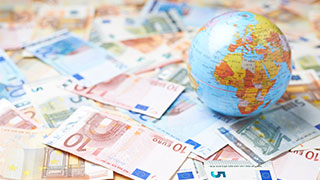
World without cash – changes in conventional banking and payment systems
- Project team:
Simone Ehrenberg-Silies (Project Manager), Robert Peters, Christian Wehrmann, Stephanie Christmann-Budian
- Thematic area:
- Topic initiative:
Committee on Education, Research and Technology Assessment
- Analytical approach:
TA brief study
- Startdate:
2019
- Enddate:
2022*
sprungmarken_marker_1272
Subject and objective of the study
Cash is the only unrestricted legal tender in Germany and also remains the most commonly used means of payment. Nonetheless, the spread of non-cash means of payment is being driven ever further by a declining price and greater availability and dissemination of basic technologies, consumer wishes for more convenient means of payment with additional functions, and the Corona pandemic. In addition, legal regulations to open up data repositories and proprietary systems as well as initiatives by the market players themselves facilitate open banking, i.e., the linking of services from different providers by opening up interfaces as a basis for the development of new types of non-cash payment solutions.
Numerous new players have already succeeded in entering the market in the financial and banking sector, thus permanently changing the banking ecosystem. These include both large companies with established technology platforms such as Alibaba, Amazon and Facebook (BigTechs) as well as (young companies that develop and offer technology-based, specialized and customer-oriented financial services (FinTechs).
The aim of the brief study was to analyze current developments in payment transactions. In addition, the specific characteristics of cash and selected non-cash payment solutions were to be examined and compared with one another, as were payment behavior in Germany, Sweden and China. The study was rounded off by an examination of the changing power structure in payment transactions as a result of the emergence of new players and the subsequent reactions of traditional credit institutions and central banks.
Key results
Compared with non-cash means of payment, cash represents an important corrective in payment transactions. No non-cash means of payment achieves a similarly high level of inclusion and provides comparable protection of privacy. By storing value in cash, consumers can avoid negative interest rates. However, high cash holdings reduce the central banks' monetary policy steering options.
Although the use of cash is free of charge for consumers, e.g. in retail, the circulation of cash and the cash infrastructure are not. A development like that in Sweden, where cash transactions hardly play a role anymore, is unlikely even in the medium term in Germany; nevertheless, the question of the costs and the assumption of costs for the provision of cash infrastructure could also arise in this country if cash use continues to decline. In order to ensure a minimum level of cash supply, it might then be necessary to respond with legal measures, as in Sweden.
The use of non-cash means of payment is also continuing to increase in Germany. Of particular importance are card-based payment methods - either directly with the plastic card (debit or credit card) or with the virtual card, via which non-cash payment methods are processed in the background, as is common in mobile payment and Internet payment methods.
The use of non-cash means of payment is more preconditional for consumers than the use of cash. Prior to use, a contract must be concluded with a private payment service provider, which is not always formulated in a way that is easy to understand. Payment service providers can refuse merchants and customers the use of their payment solution, for example, if the creditworthiness is not given or if a merchant offers offers and services that are legal but not compatible with the ethical ideas of the payment service provider. In addition, most non-cash payment solutions cannot be used without a checking account.
The level of security and data protection of the respective non-cash payment solutions varies widely. For example, payment with debit cards can be rated as relatively secure compared with many other non-cash payment methods, and the level of data protection is also comparatively high. Credit cards score worse on both points.
In general, the level of data protection for new types of payment solutions such as Internet payment methods and mobile payments is lower than for card payments, as data is also collected and processed here that is not directly related to the payment process.
BigTechs are now established players in payment transactions. Their motives for entering the market and the business models they pursue are diverse. They range from data collection for advertising purposes and the goal of keeping customers in their own ecosystem for as long as possible to generating revenue by offering payment transaction products. As payments become more and more an integrated function, banks run the risk of becoming background processors and losing their visibility to customers.
Given the presence and market power of U.S. card providers and BigTechs, and the likely increasing influence of Chinese BigTechs in payments, maintaining the European banking industry's ability to act is of great importance. The key ideas in this area are the development of products for different payment situations under a European umbrella brand, based on instant payments (real-time transfers where it takes only a few seconds to transfer funds from the payer's account to the payee's account), and the creation of a European card scheme.
In June 2021, the ECB also decided to enter an investigation phase into the possible design of the digital euro. This is expected to last until October 2023.
Event
Public expert discussion on 18 June 2020 in the Bundestag:
World without cash - changes in traditional banking and payment systems
Publications
Ehrenberg-Silies, S.; Peters, R.; Wehrmann, C.; Christmann-Budian, S.
2022. Büro für Technikfolgen-Abschätzung beim Deutschen Bundestag (TAB). doi:10.5445/IR/1000152724
Ehrenberg-Silies, S.; Peters, R.; Wehrmann, C.; Christmann-Budian, S.
2022. Büro für Technikfolgen-Abschätzung beim Deutschen Bundestag (TAB). doi:10.5445/IR/1000148253
Ehrenberg-Silies, S.; Peters, R.; Wehrmann, C.; Christmann-Budian, S.
2022, April. Büro für Technikfolgen-Abschätzung beim Deutschen Bundestag (TAB)
Topic brief
Jetzke, T.; Richter, S.
2017. Büro für Technikfolgen-Abschätzung beim Deutschen Bundestag (TAB). doi:10.5445/IR/1000133900
